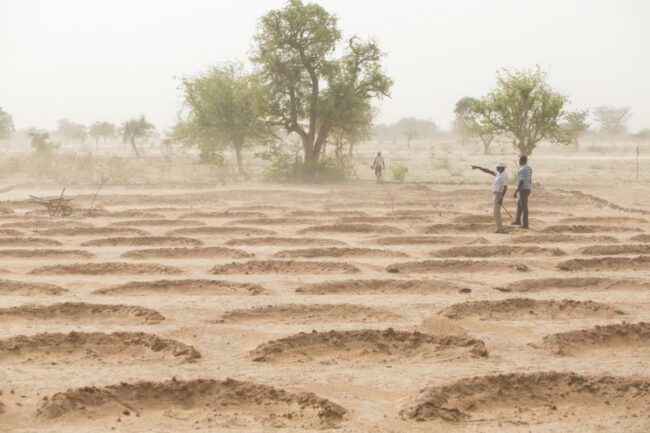
The Food and Agriculture Organisation (FAO), in collaboration with Kano State Agro-Climatic Resilience in Semi-Arid Landscapes (ACReSAL), has said that Nigeria has committed to restoring four million hectares of degraded lands for agriculture development
It was just said that the ACReSAL promised to support the restoration of one million hectares with the technical partnership of the FAO to restore 350,000 hectares of land.
Dr Dahir Muhammad Hashim, the ACReSAL Project Coordinator in Kano, disclosed this at the end of a 5-day training for drivers of Delfino plough machines on land preparation for restoration held at Kyale community, Gabasawa Local Government Area of the state.
He then disclosed that the process of restoring over 10.000 hectares of degraded lands across the state has begun.
The restoration programme has started with the training of the drivers who will make use of the Delfino plough machine on the operations that will guide their activities.
According to him, ” The Kano Government, under the ACReSAL project, has identified over 10,000 hectares of degraded land that will be restored and handed over to farmers for cultivation.
He also added that ‘Apart from allotting the restored lands to farmers for cultivation, we would provide them with seeds and fertilisers and other agricultural inputs to enhance food production.”
‘’Similarly, we would ensure that trees are planted on the lands to address deforestation and climate mitigation in our local government areas,” Hashim said.
Earlier, the Food and Agriculture Organisation (FAO) Focal Person, Precious Agbeso, reiterated the commitment of FAO, an agency under the United Nations, to providing support to countries with the aim of ensuring improved food production and security.
Agbeso said part of such efforts is the collaboration with the Nigerian government in recovering the 350,000 hectares of degraded land for cultivation in the 19 northern states, including FCT.
He hinted that the Delphino machine is totally different from the common tractor that is used for ploughing and cultivation, among others.
‘’The Delphino machine is specially produced for operations like land restoration very quickly and diligently,’’ Agbeso said.
‘’The training for the operators became pertinent because, without the knowledge of how to operate the machine, the goals of the restoration of the degraded lands may become a mirage.
‘’The training is to ensure that we have a pool of operators in the country that would be able to drive the machine seamlessly. So as technical partners, training the operators is our responsibility.’’
ALSO READ THESE TOP STORIES FROM NIGERIAN TRIBUNE
Source: